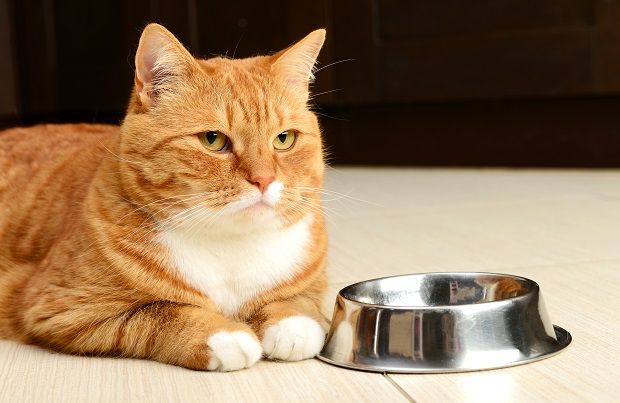As a cat owner, you may have noticed that your feline companion seems to have an insatiable appetite. No matter how much you feed them, they always seem to be hungry, begging for food at every opportunity. This behavior can be puzzling and concerning, leading you to wonder why your cat is always hungry. In this blog post, we will delve into the various reasons behind your cat's voracious appetite and explore ways to manage it effectively.
1. Natural Instincts
Cats are natural hunters and have evolved to eat multiple small meals throughout the day. In the wild, they would consume several small prey items to meet their nutritional needs. Domesticated cats still retain this instinct, and their constant hunger may be a reflection of their natural feeding pattern.
2. Improper Nutrition
One possible reason for your cat's constant hunger is inadequate nutrition. Low-quality cat food or diets lacking essential nutrients may not provide the necessary sustenance, leading to increased hunger. It is crucial to ensure that you are feeding your cat a well-balanced, nutritionally complete diet that meets their specific needs.
3. Poor Feeding Routine
Establishing a consistent feeding routine is crucial for maintaining your cat's appetite and preventing excessive hunger. Feeding irregularly or leaving food out all day can disrupt their natural eating pattern and cause them to constantly seek food. Dividing their daily food into several small meals throughout the day can help regulate their hunger and prevent overeating.
4. Medical Conditions
Persistent hunger can be a symptom of an underlying medical condition. Certain health issues, such as hyperthyroidism and diabetes, can cause increased appetite in cats. If your cat's hunger is accompanied by other symptoms like weight loss, excessive thirst, or changes in behavior, it is essential to consult your veterinarian for a thorough examination and appropriate diagnosis.
5. Stress and Anxiety
Stress and anxiety can impact a cat's appetite. Changes in the household, such as moving to a new home, the introduction of a new pet, or a disruption in their routine, can trigger stress and lead to increased hunger. Cats may resort to food as a coping mechanism, seeking comfort and reassurance through eating. Creating a calm and stable environment for your cat and providing outlets for mental and physical stimulation can help alleviate their anxiety and reduce their constant hunger.
6. Lack of Exercise
Cats are natural athletes and need regular exercise to stay healthy. A sedentary lifestyle can contribute to weight gain and increased hunger in cats. Engaging your cat in interactive play sessions and providing opportunities for physical activity can help burn off excess energy and regulate their appetite.
7. Parasites
Internal parasites, such as worms, can affect your cat's overall health and lead to increased hunger. These parasites consume nutrients from the cat's digestive system, leaving them malnourished and hungry. Regular deworming, as recommended by your veterinarian, can help control internal parasites and reduce your cat's constant hunger.
Managing Your Cat's Constant Hunger
- Choose high-quality, nutritionally balanced cat food that meets your cat's specific dietary requirements.
- Establish a consistent feeding routine with multiple small meals throughout the day.
- Consult your veterinarian if you suspect an underlying medical condition.
- Create a stress-free environment and provide mental and physical stimulation for your cat.
- Encourage regular exercise through interactive play and environmental enrichment.
- Ensure your cat receives regular veterinary check-ups and deworming treatments.
While it can be concerning when your cat always seems to be hungry, there are several reasons behind this behavior. Understanding the natural instincts, nutritional needs, and potential health issues of your cat can help you manage their constant hunger effectively. By providing a well-balanced diet, a consistent feeding routine, and addressing any underlying medical or behavioral issues, you can help your cat maintain a healthy appetite and overall well-being.
Remember, every cat is unique, and what works for one may not work for another. If you're unsure about your cat's nutritional needs or the best approach to manage their constant hunger, consult with your veterinarian. They can provide valuable insights and tailor recommendations based on your cat's specific circumstances.
It's also worth noting that sudden changes in appetite, especially if accompanied by other concerning symptoms, should never be ignored. If your cat experiences rapid weight loss, lethargy, vomiting, or any other abnormal behavior, seek immediate veterinary attention. Prompt medical intervention can help identify and address any serious health issues your cat may be facing.
A cat's constant hunger can be influenced by various factors such as natural instincts, poor nutrition, irregular feeding routines, underlying medical conditions, stress, lack of exercise, and parasites. By understanding these potential causes and implementing appropriate strategies, you can help manage your cat's hunger and ensure their overall health and happiness.
Remember, a healthy and balanced diet, a consistent feeding routine, regular veterinary care, a stress-free environment, and opportunities for physical and mental stimulation are key to promoting a healthy appetite and overall well-being in your feline companion. Your cat's hunger may not always be a cause for concern, but it's always important to monitor their behavior and consult with professionals when in doubt.
As responsible cat owners, we have the power to provide our feline friends with the care they need to thrive. So, let's stay informed, attentive, and proactive in meeting their nutritional and emotional needs. A well-fed and contented cat is a happy and healthy companion for years to come.


Comments
Post a Comment